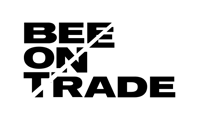U.S. Customs and Border Protection (CBP) requires that all products imported into the United States be labeled with their country of origin
The country of origin is the country in which a product was manufactured, produced, or grown.
There are several reasons for this requirement, including
- Ensuring That Products can be Legally Imported: Some countries may have restrictions on the import of certain products, and knowing the country of origin can help to ensure that products are cleared through customs efficiently.
- Providing the US with Statistics on Imported Goods: Knowing the country of origin of imported products can provide valuable information about the US economic market.
- Helping to Protect Consumers: Country of origin labeling can help consumers make informed decisions about the products they purchase.
According to CBP regulations, every foreign product entering the US must be labeled, in English, with the country of origin. This marking must be clearly and visibly located on the product and must be written legibly and permanently. Failure to comply with these requirements can result in penalties or other enforcement actions.
There are some exceptions to the country of origin labeling requirement for products imported into the United States. These exceptions apply to products that:
- Are not intended for resale
- Are incapable of being marked (for example, if the product is very small)
- Were produced more than 20 years before importation
- Are crude substances
- Would be ruined if directly marked upon (such as fruit)
If a product is exempt from labeling, its packaging must be marked with the country of origin. For example, the crates or boxes containing fruit must indicate their relevant details of origin.
You must be aware of the country of origin labeling requirements for the products you are importing and ensure that you comply with these requirements.
Failure to comply with these requirements can result in penalties or other enforcement actions.
If your products enter the United States unmarked and Customs and Border Protection (CBP) denies you the right to mark them before resale, you may face the following penalties:
- Special Marking Duties: These duties can be up to 10% of the product's total value.
- Delays: If goods are not marked properly, CBP will not release the shipment. They may ask for the goods to be marked or to be re-exported out of the country.
- False Certification Penalties: These penalties can reach up to the total value of the merchandise.
- Civil Penalties: If the markings on goods are changed falsely or extinguished, penalties can reach as much as $50,000 per occurrence.
- Criminal Penalties: These penalties may be incurred if the country of origin is intentionally misrepresented to circumvent a quota or other restriction.
It's important to ensure that your products are properly marked with their country of origin to avoid these penalties. Failing to comply with these requirements can result in significant financial consequences and other enforcement actions.
